Pere Vergés
DotHash: Estimating Set Similarity Metrics for Link Prediction and Document Deduplication
May 27, 2023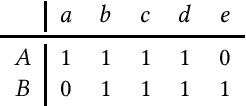
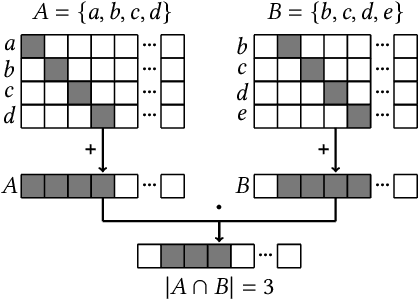
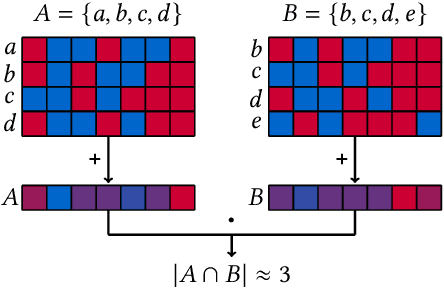
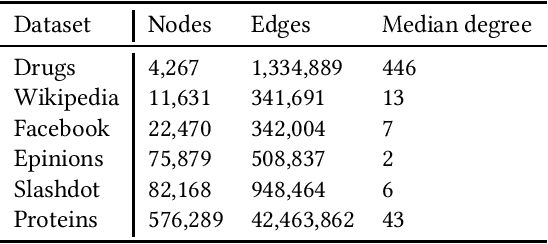
Abstract:Metrics for set similarity are a core aspect of several data mining tasks. To remove duplicate results in a Web search, for example, a common approach looks at the Jaccard index between all pairs of pages. In social network analysis, a much-celebrated metric is the Adamic-Adar index, widely used to compare node neighborhood sets in the important problem of predicting links. However, with the increasing amount of data to be processed, calculating the exact similarity between all pairs can be intractable. The challenge of working at this scale has motivated research into efficient estimators for set similarity metrics. The two most popular estimators, MinHash and SimHash, are indeed used in applications such as document deduplication and recommender systems where large volumes of data need to be processed. Given the importance of these tasks, the demand for advancing estimators is evident. We propose DotHash, an unbiased estimator for the intersection size of two sets. DotHash can be used to estimate the Jaccard index and, to the best of our knowledge, is the first method that can also estimate the Adamic-Adar index and a family of related metrics. We formally define this family of metrics, provide theoretical bounds on the probability of estimate errors, and analyze its empirical performance. Our experimental results indicate that DotHash is more accurate than the other estimators in link prediction and detecting duplicate documents with the same complexity and similar comparison time.
HDCC: A Hyperdimensional Computing compiler for classification on embedded systems and high-performance computing
Apr 24, 2023
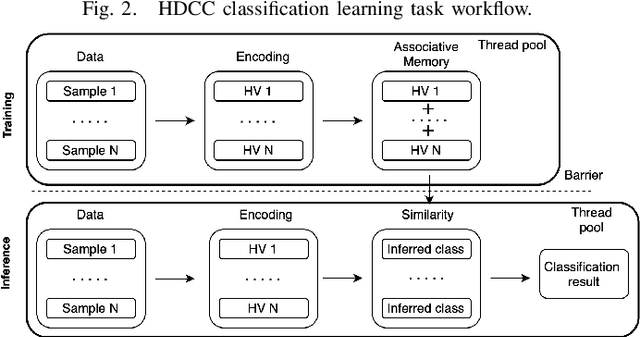
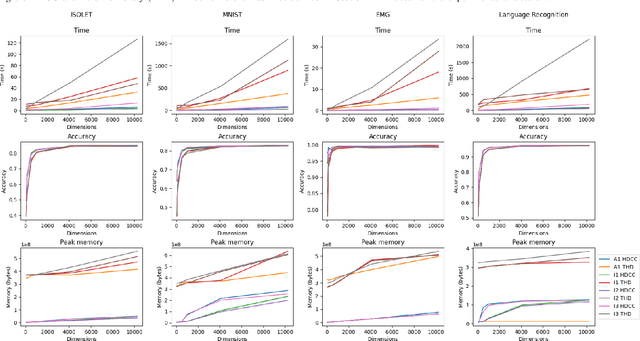

Abstract:Hyperdimensional Computing (HDC) is a bio-inspired computing framework that has gained increasing attention, especially as a more efficient approach to machine learning (ML). This work introduces the \name{} compiler, the first open-source compiler that translates high-level descriptions of HDC classification methods into optimized C code. The code generated by the proposed compiler has three main features for embedded systems and High-Performance Computing: (1) it is self-contained and has no library or platform dependencies; (2) it supports multithreading and single instruction multiple data (SIMD) instructions using C intrinsics; (3) it is optimized for maximum performance and minimal memory usage. \name{} is designed like a modern compiler, featuring an intuitive and descriptive input language, an intermediate representation (IR), and a retargetable backend. This makes \name{} a valuable tool for research and applications exploring HDC for classification tasks on embedded systems and High-Performance Computing. To substantiate these claims, we conducted experiments with HDCC on several of the most popular datasets in the HDC literature. The experiments were run on four different machines, including different hyperparameter configurations, and the results were compared to a popular prototyping library built on PyTorch. The results show a training and inference speedup of up to 132x, averaging 25x across all datasets and machines. Regarding memory usage, using 10240-dimensional hypervectors, the average reduction was 5x, reaching up to 14x. When considering vectors of 64 dimensions, the average reduction was 85x, with a maximum of 158x less memory utilization.
Torchhd: An Open-Source Python Library to Support Hyperdimensional Computing Research
May 18, 2022
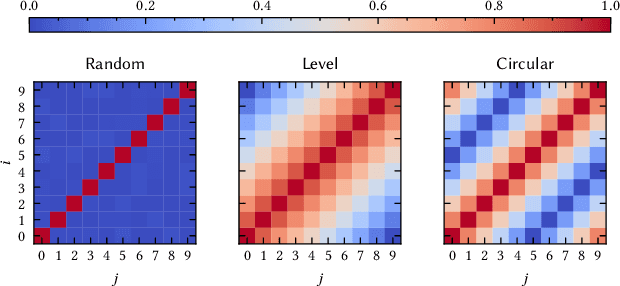
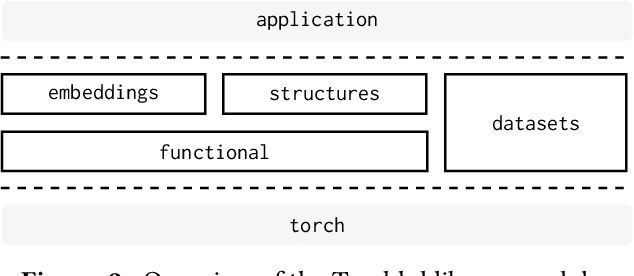

Abstract:Hyperdimensional Computing (HDC) is a neuro-inspired computing framework that exploits high-dimensional random vector spaces. HDC uses extremely parallelizable arithmetic to provide computational solutions that balance accuracy, efficiency and robustness. This has proven especially useful in resource-limited scenarios such as embedded systems. The commitment of the scientific community to aggregate and disseminate research in this particularly multidisciplinary field has been fundamental for its advancement. Adding to this effort, we propose Torchhd, a high-performance open-source Python library for HDC. Torchhd seeks to make HDC more accessible and serves as an efficient foundation for research and application development. The easy-to-use library builds on top of PyTorch and features state-of-the-art HDC functionality, clear documentation and implementation examples from notable publications. Comparing publicly available code with their Torchhd implementation shows that experiments can run up to 104$\times$ faster. Torchhd is available at: https://github.com/hyperdimensional-computing/torchhd
 Add to Chrome
Add to Chrome Add to Firefox
Add to Firefox Add to Edge
Add to Edge